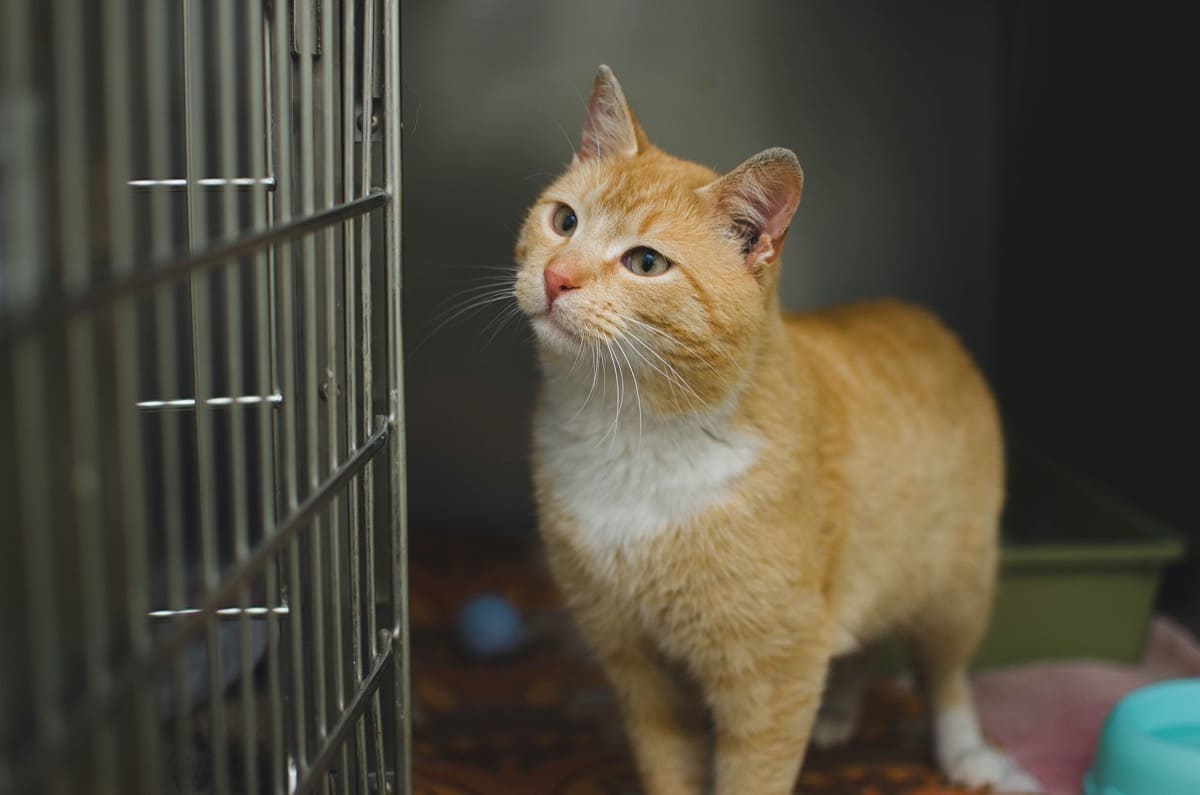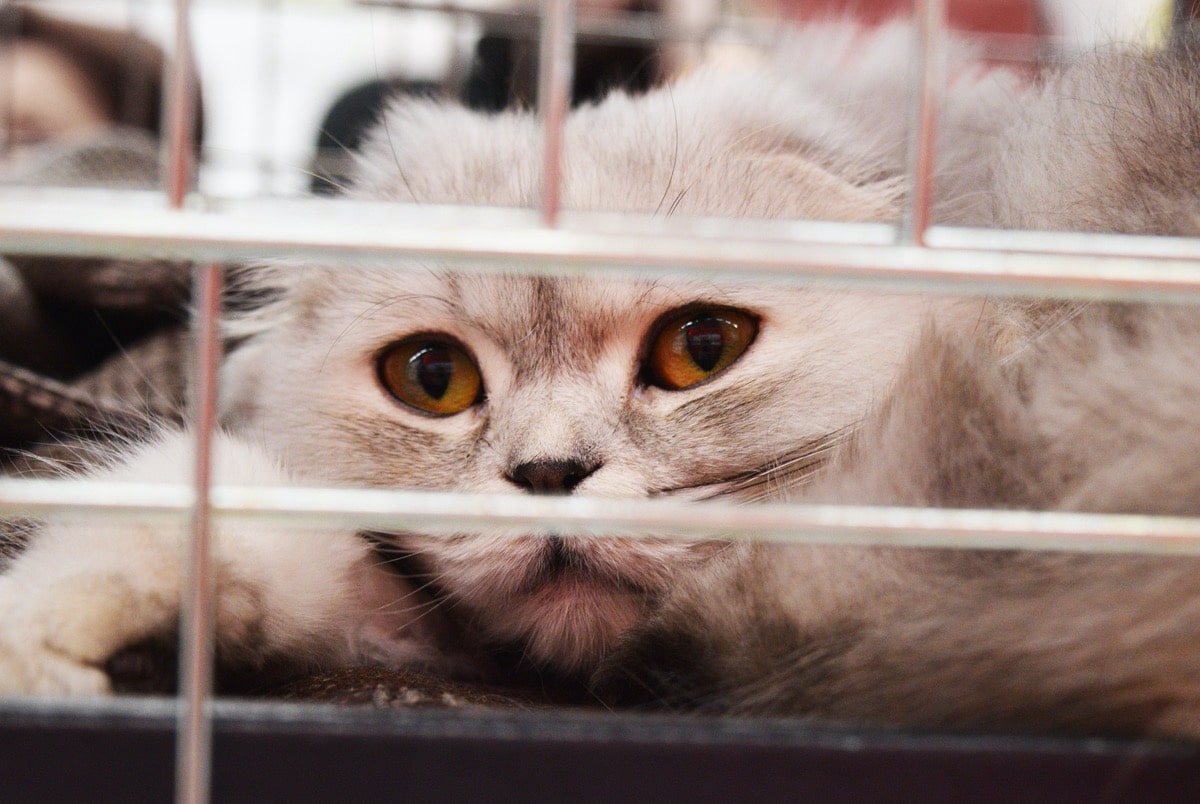
Our furry can be affected by a series of pests, such as fleas or ticks, but also by internal parasites such as worms of the species toxocara cati. For your own safety and health, it is very important to deworm it from time to time, as otherwise we could put your life at risk.
Therefore, we explain what is deworming and how can you do it.
What is deworming?

Deworming is the removal of parasites from an organism, in the present case, the cat. There are of two types:
- External deworming: eliminates external parasites, that is, those that remain attached to the skin, such as mites, fleas, ticks, lice.
- Internal deworming: eliminates internal parasites, that is, intestinal worms and worms.
When can you deworm a kitten?
If you have just picked up or adopted a kitten, you should know that, unless it has already received antiparasitic treatment, it is most likely that it has internal and perhaps external parasites. So, it is best to take him to the vet to give you a syrup (If you are in Spain, he will probably prescribe Telmin Unidia, which you will have to give it for 5 days and again after two weeks) and an antiparasitic spray, Frontline being highly recommended since it can be applied after 2 days of life.
How often do you have to deworm a cat?
External deworming
The use of antiparasitic pipettes, sprays and / or collars is recommended from spring to late summer / early fall, especially if the animal goes outside.
Internal deworming
To eliminate and / or prevent the infestation of internal parasites, the antiparasitic syrup or pill recommended by the veterinarian must be supplied. 15 days before each vaccination and again once a month.
Deworming in small cats and adult cats

When it is welcomed, it is adopted and in short, when a cat enters as a new member of the family, it is very exciting! And is not for less. Cats are wonderful beings that will make your life better ... But it is necessary to deworm them as we have explained above. Although, is it the same for adult cats as it is for smaller cats? Let's see.
- Kittens. Initial treatment should be started when he is 3 weeks old and then as directed by the veterinarian. Once the initial treatments are finished, the recommendation is to deworm the cat once a month to prevent worms in the heart or intestines. Your veterinarian will have to do a good follow-up and adjust the treatments depending on the evolution of your little feline.
- Adult cats. When the cat is an adult, and you already dewormed it when it was small, your adult cat should receive monthly preventives throughout the year. In addition, fecal tests should be done 2 or 3 times a year, depending on the cat's lifestyle, whether or not he leaves the house, etc. If you adopt an adult cat, you will need to take him immediately to the vet to have him dewormed and check his health.
- A cat just arrived at your home. No matter how old the cat is, it is necessary that you take him to the vet first to check his health and to have him dewormed as soon as possible. Then it will depend on the state of health, your veterinarian may recommend deworming him once a month or sooner depending on how he sees the health of your cat.
How do I know if my cat has worms?
When cats have worms, they usually do not have visible symptoms. Although sometimes you can see certain white worms in the stool or in vomit. They even look like eggs as if they were pieces of white rice.
When a cat has a severe worm infection It can cause all kinds of symptoms: vomiting, diarrhea, weight loss, and pain in the anus. Even when it is a small kitten, it may have growth problems or a swollen abdomen.
In any case, you will always have to go quickly to the vet to see the specific case of the cat and that in this way can treat the condition in the fastest and most effective way possible.
Fleas and worms
The cats they can also get worms from flea eggs they may have and are infected. That is why it is also so important to treat flea cats as soon as possible and prevent them if they do not have them. This should be done on a regular basis, especially if the cat is caught from the street or if it usually goes for a walk outside.
This is important to do on a regular basis in addition to deworming. If you don't, fleas and worms will continue to grow and live in your feline's body and it will be exposed to diseases and the worst thing is that it could also infect you. So It is very important that you always keep your beloved feline in good health.
Is my cat healthy after deworming?

To know if your cat is healthy or not, it depends on several factors not only if it has been dewormed or not. It must have a good diet so that it grows strong and healthy, maintain a daily activity (play with your cat), sleep well, body care, that it does not lack its vaccines ... Your cat's behavior will tell you if it is healthy or not. that active behavior will show you that it is okay and Overly listless behavior can cause you to worry.
You will have to inspect their skin and coat to know that everything is going well. If the skin is flaky, bald, or has damaged skin, then this may be a problem that you need to look at at the vet.
Same with fleas, inspect if you have fleas or not. To find out, look at his droppings and if he has black spots, he wet the stool and if it turns red, he has fleas.
Either way, what is important is that if you see any strange appearance in your cat, do not wait for time to pass or "it passes alone." It is important that you take him to the vet to find out if there is a condition that requires treatment.
With these tips, sure that our furry will have a very good health.